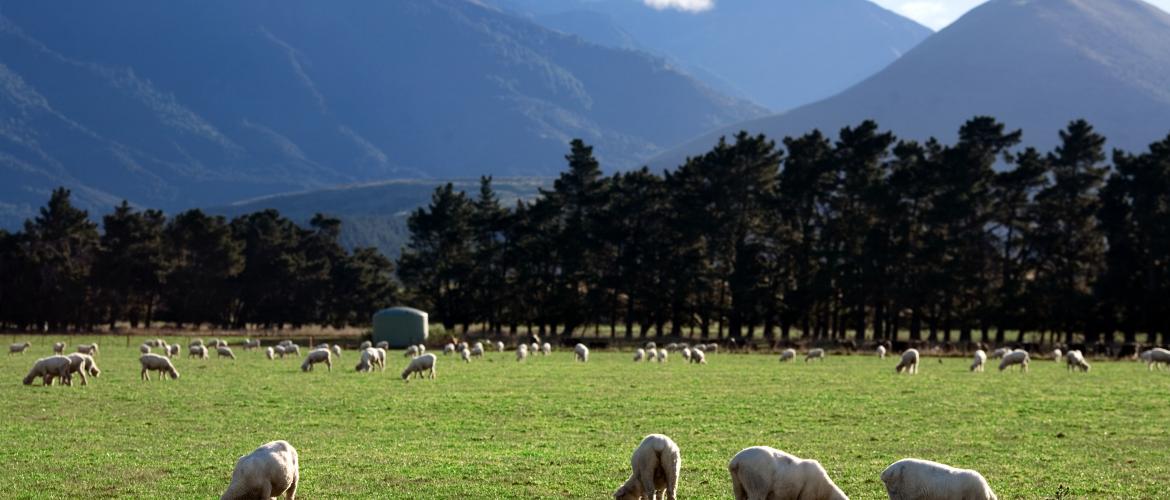New Zealand introduces zero carbon bill
May 11, 2019 | Expert Insights

Background
Climate change refers to variations in Earth’s weather patterns. Studies published in peer-reviewed scientific journals show that climate scientists agree that recent trends in global warming are caused by human activity. A recent UN study found that over a million species face extinction as a result of human-caused global warming.
Current efforts seek to limit warming to 1.5 degrees Celsius, with the scientists warning that increases above 2 degrees would be irreversible. The earth’s atmosphere has already warmed at least 0.88 degrees Celsius.
A significant contributor to climate change is greenhouse gases. These gases absorb and emit the sun’s energy, warming up the earth’s atmosphere in the process. Primary greenhouse gases include water vapour, carbon dioxide, methane, nitrous oxide and ozone. Human activity since the Industrial Revolution has caused a 45% increase in atmospheric carbon dioxide and methane. Methane emissions come mainly from livestock, while carbon dioxide is created by transport, industry and electricity generation.
New Zealand Prime Minister Jacinda Ardern’s government was formed through a coalition. PM Ardern’s Labour and the Greens represented a bloc that required New Zealand First’s support to form a government. Concessions agreed upon included various policies to combat climate change. The Green Party’s leader, James Shaw, is the country’s climate change minister.
Analysis
Prime Minister Jacinda Ardern recently announced a bill that would set a target of zero carbon emissions by 2050. The legislation would introduce targets for carbon and methane emissions produced by human activity. It would also create an independent climate change commission. As a result of the coalition agreement, the bill has cross-party support.
Almost half of New Zealand’s current greenhouse gas emissions come from the agriculture sector. Methane from livestock accounts for about 35%, while nitrous oxide from nitrogen added to soil as fertiliser accounts for most of the rest.
The bill sets targets of a 10% reduction in biological methane by 2030 and a proposed reduction of between 24-47% by 2050. These targets will be reviewed and implemented by the independent climate commission. However, goals for the reduction of methane in the agricultural sector has been a source of disagreement. The opposition National Party believes that the methane targets are too high, while environmental activists want the country to aim for net-zero emissions.
National Party leader, Simon Bridges, said, “We are not convinced that the proposed 24-47% reduction for methane meets our test in terms of science, economic impact or global response.” The party believes that these goals are unsustainable and will not allow the agricultural sector to embrace change in a systematic manner. The reservations voiced by the party is in-line with their belief in limited government intervention in economic policies. The party’s website says, “We will not place unnecessary costs on business… There is no point in shutting businesses here, only for them to go offshore to less environmentally friendly places.”
The agriculture sector is a vital source of export revenue for New Zealand. Although home to just under five million people, the country has more than 10 million cows and 28 million sheep. The sheep and beef sector is worth US$ 6.8 billion. The Federated Farmers, a farmer lobbying group, has said that the government had “given up on pastoral farming.” The group said the only way to meet the targets would be to cut production levels. Other players in the industry accused the government of asking more of the agriculture sector than fossil fuel emitters elsewhere.
Counterpoint
The bill introduces a plan for zero carbon emissions by 2050 while allowing continued methane discharge. Contrary to accusations of preferential treatment to fossil fuel users, the law actually allows special concessions for the agriculture sector. In 2018, a government poll showed that 91% of New Zealanders backed a goal of zero greenhouse gasses, including methane. However, given the importance of the agriculture sector to the country’s economy, methane targets were altered.
Greenpeace, the international environmental advocacy group, welcomed the ambitious targets the bill proposed. However, the group criticised the proposal for having no enforcement mechanism to ensure the goals were met.
Assessment
Our assessment is that preferential treatment is given to the agriculture sector over fossil fuel emitters as evidenced by the goal to set carbon emissions at zero. This is contrary to statements by the agriculture industry. Research shows that the consumption of meat is contributing to the majority of greenhouse emission. We believe that the increased price of livestock products will be passed on to the consumer, which might reduce the quantity demanded. This is projected to reduce the overall production of greenhouse gases.
While such a cap is a positive step towards reversing the effects of global warming, we believe that the bill does not yet provide an enforcement mechanism. This could mean that the target could remain ambitious.
India Watch
India’s agriculture sector accounts for a total of 18% of national greenhouse emissions. The top two sectors that emit greenhouse gases are energy and industry. While carbon-related controls can help control the energy and industry sector, a study shows that India’s agriculture emissions can be reduced by the efficient use of fertilisers, adoption of zero-tillage and management of water used in rice irrigation. Legislating a bill to introduce zero-carbon targets could help in adjusting the economy and civilians to a sustainable future.
Image Courtesy - © Jorge Royan / http://www.royan.com.ar








Comments